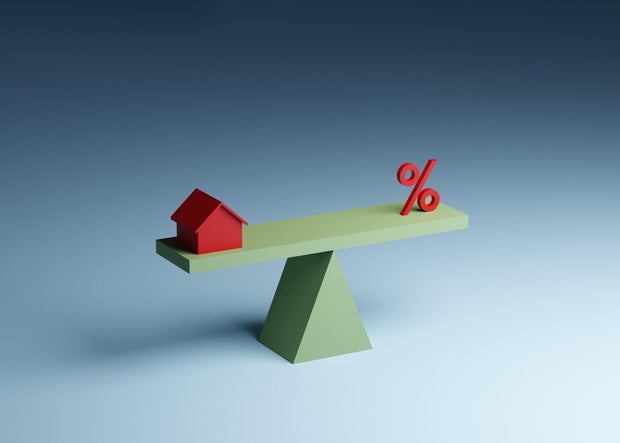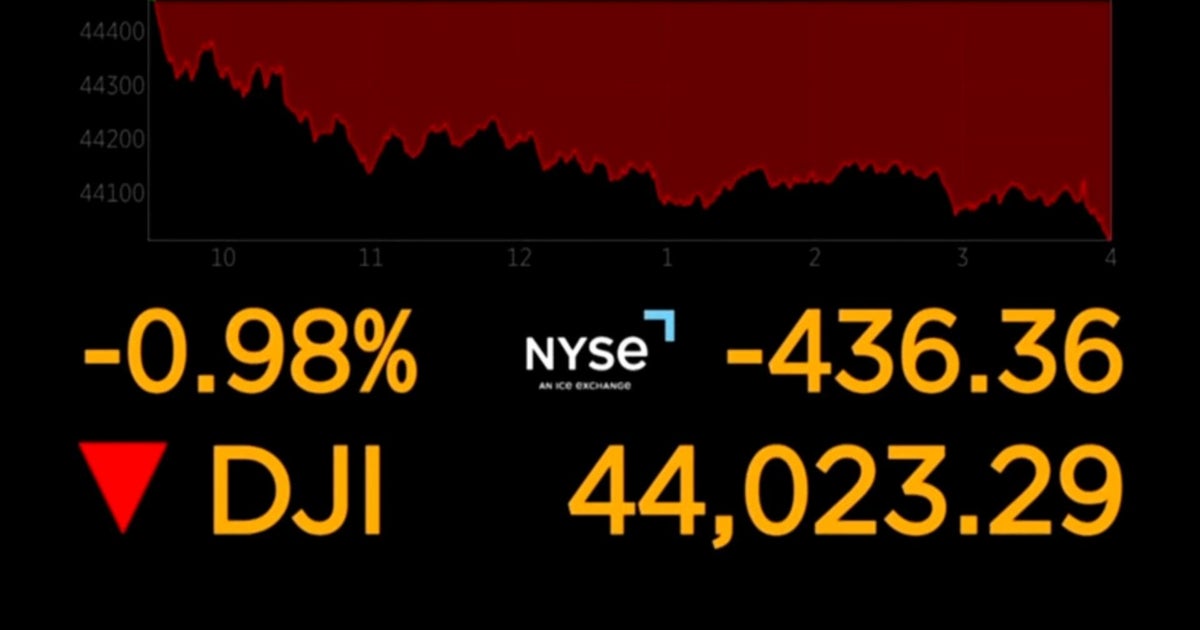 If you're waiting for mortgage rates to drop, it may benefit you to take a few simple steps now to prepare.
Getty Images
If you're waiting for mortgage rates to drop, it may benefit you to take a few simple steps now to prepare.
Getty Images
Whether you're buying a new home or considering mortgage refinancing, the main question is the same right now: When will rates drop? The interest rate environment has remained elevated across various lending products, after all, as the Federal Reserve has maintained the federal funds rate this year to lower the inflation rate.
As a benchmark interest rate, the federal funds rate has a major impact on rates for borrowers, and that includes the cost of borrowing money to buy or refinance a home. If there are rate cuts or rate spikes, interest rate changes are likely to follow. So, while not directly tied to mortgage rates, the Fed's decisions have a ripple effect and can influence the direction of where home loan rates head next.
The Federal Reserve is meeting again later this month, but the CME Group FedWatch tool indicates that experts believe it's unlikely that rate cuts will occur when the Fed meets at that time. On the other hand, the tool shows higher chances of rate cuts in September, October and December, which could potentially lead to a drop in mortgage interest rates, and homebuyers who want to take advantage of these rate cuts can do several things now to put themselves in a solid position.
Compare your loan options now to find out how affordable the right mortgage could be.
What homebuyers should do before rate cuts, mortgage experts say
Before taking any action, it's important to understand the relationship between the Federal Reserve and mortgage rates.
"When the Fed lowers rates, it directly reduces the prime rate, which means rates on HELOCs, car loans, and credit cards typically go down. Mortgage rates don't move exactly with Fed cuts, but those cuts, and the Fed's economic guidance, impact the bond market, which ultimately drives mortgage rates," says Jill Carrade, a mortgage broker at Pro Mortgage.
So while the Fed rate can impact mortgage rates, the two aren't directly correlated. But in anticipation of rate cuts that may occur later this year, here's what potential borrowers should do now.
Do your research
The real estate market has a learning curve for new borrowers. You want to understand the different terms you might come across, know about potential fees, and review your budget. The last thing you want to do is rush into something as significant as homeownership.
"The biggest thing that someone should do is get prepared…Sit down and talk to somebody and say, 'Well, what does it take to get a mortgage? What do I need to do? Are there things I can prepare for?' And that's going to involve a review of your income versus your bills, and in this case, a good mortgage professional is going to help people with budgeting," says Mark Worthington, a loan officer and branch manager at Churchill Mortgage.
Starting your research now, ahead of any rate cuts, can put you in a stronger position to act when the time is right.
"I think it's also important to note that my perspective is that we won't see any major swings in terms of rates before at least the end of the year, but that just makes it more important to be sort of all ready to go when you find the right property, so you can be ready to act in case you catch a dip," says Sarah DeFlorio, the vice president of mortgage banking at William Raveis Mortgage.
Learn more about the mortgage loan rates you could qualify for now.
Improve your credit score
Your credit score is one of the many factors that lenders look at when determining home loan rates. Putting in the effort to improve your credit score can help you in both the short term and the long term.
"A higher credit score typically gets better interest rates, which for the same sales price of a home, is a lower payment," says Worthington.
Various factors affect your credit score and carry different weights. However, payment history is one of the most significant, so making on-time payments is crucial. But it's not just making payments by the due date that matters. How much you owe relative to your total credit limit — often referred to as credit utilization — accounts for about 30% of your credit score.
DeFlorio suggests that you pay down any balances you're carrying. While that may not be a possibility for everyone, if it is, it could help.
For the best results, it makes sense to pay off your credit card balances by the due date. But paying off your balances before the statement date could be even more beneficial.
"The trick is you actually pay down the balance so that the statement gets issued at a 0 balance. And then that's the information that gets reported," says DeFlorio.
Additionally, Worthington says to avoid applying for new credit before applying for a mortgage, which could lead to a drop in your credit score.
Look at loan features
According to data from Freddie Mac, mortgage rates on a 30-year fixed-rate mortgage dipped five weeks in a row, but recently ticked up slightly, coming in at 6.72% as of July 10th.
While looking at mortgage interest rates is an important part of your research, DeFlorio suggests looking at different loan features as well.
"We're not going to see too much of a variation in rates for the next few months, but loan features vary from bank to bank. So, for example, what is the bank's float down policy, if they have one? Which would mean, if once you're locked, you may have the ability to get a lower rate if the market shifts in that direction," says DeFlorio.
Find the right home
The mortgage experts we spoke to agreed that finding the right home is generally more important than timing the market. While rate cuts can help, you don't want to miss out on your dream home waiting for the perfect moment.
"When rates drop, many buyers who have been waiting on the sidelines tend to jump back into the market all at once. That increased competition can drive home prices higher and lead to bidding wars. Even if you get a lower rate, you might end up paying more for the home itself. It's important to weigh those trade-offs when deciding on your timing," says Carrade.
Getting into real estate and taking out a mortgage is essentially entering a long-term relationship. When you find the right fit, you can work with a professional to help figure it all out.
"The biggest recommendation is to find the right house. With the right house, your mortgage professional can help find you the best mortgage," says Worthington.
The bottom line
If you're waiting for interest rate cuts to buy a home, you may want to take the steps outlined above to prepare. Doing your research, preparing your finances and improving your credit can help. So when it's time to submit a mortgage application, you're in the best position possible. Working with mortgage brokers who can assist you in the homebuying process can also be a valuable resource. The key is to find the right home for you and a mortgage that fits your budget, regardless of where mortgage interest rates are.

















































